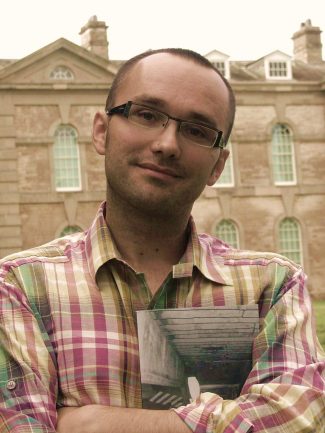Talk to Examine 'Love After Genocide'
By
Westmont

Damir Arsenijevic, cultural theorist and critic, explores contemporary Bosnian poetry and the country’s recent horrific past in a lecture, “Love After Genocide,” on March 6 at 4 p.m. in Winter Hall’s Darling Foundation Lecture Hall (Room 210) at Westmont. The talk, which is free and open to the public, is co-sponsored by the Westmont Department of Political Science and the Westmont Gender Studies Program.
“I’ll look at the construction and narration of women heroes — survivors — and the ways in which they oppose being co-opted as victims when commemorating their missing husbands, sons and brothers,” Arsenijevic says. “Challenging the political manipulations of loss from war and genocide, these women imaginatively announce a vision of a hopeful future for Bosnian society.”
Arsenijevic worked closely with families of missing persons throughout former Yugoslavia in 2008. His research has focused on exploring how, after genocide, Bosnian society is reassembling itself in a more sustainable and therefore hopeful form. Westmont political science professor Susan Penksa met Arsenijevic when she was a U.S. Fulbright Scholar to Bosnia and Herzegovina in 2007-2008.
“Dr. Arsenijevic is a brilliant scholar and activist who works at the intersection of politics, gender, culture and art,” she says “Through his teaching, scholarship and activism, Damir has made significant contributions to postwar reconciliation and peace building in Bosnia.”
Arsenijevic, who earned a doctorate in literature and cultural studies from De Montfort University, U.K., is an assistant professor of literary and cultural studies at Tuzla University in Bosnia and Herzegovina. He most recently published “The Forgotten Future: The Politics of Poetry in Bosnia and Herzegovina” and is working on a new book, “Love After Genocide,” as a U.S. Fulbright Scholar at U.C. Berkeley.
Filed under
Academics, Campus Events, Campus News, Faculty and Staff, Lectures, Press Releases